Powerful Sheriffs Rarely Held To Account As Families Fight For The Truth
As far as the Davisons knew, their son, Jimmy, was safe in the custody of the Middlesex County sheriff that September night in 2011.
Arrested for driving under the influence of drugs, the former football coach was in the old Cambridge highrise jail for three weeks, waiting for a court date.
Then his mother got a call from an emergency room doctor at Emerson Hospital in Concord. Next, it was the hospital chaplain.
“ ‘You better get up here because your son is in a bad condition,’ ” Davison’s mother, Jennie, recalled the priest saying.
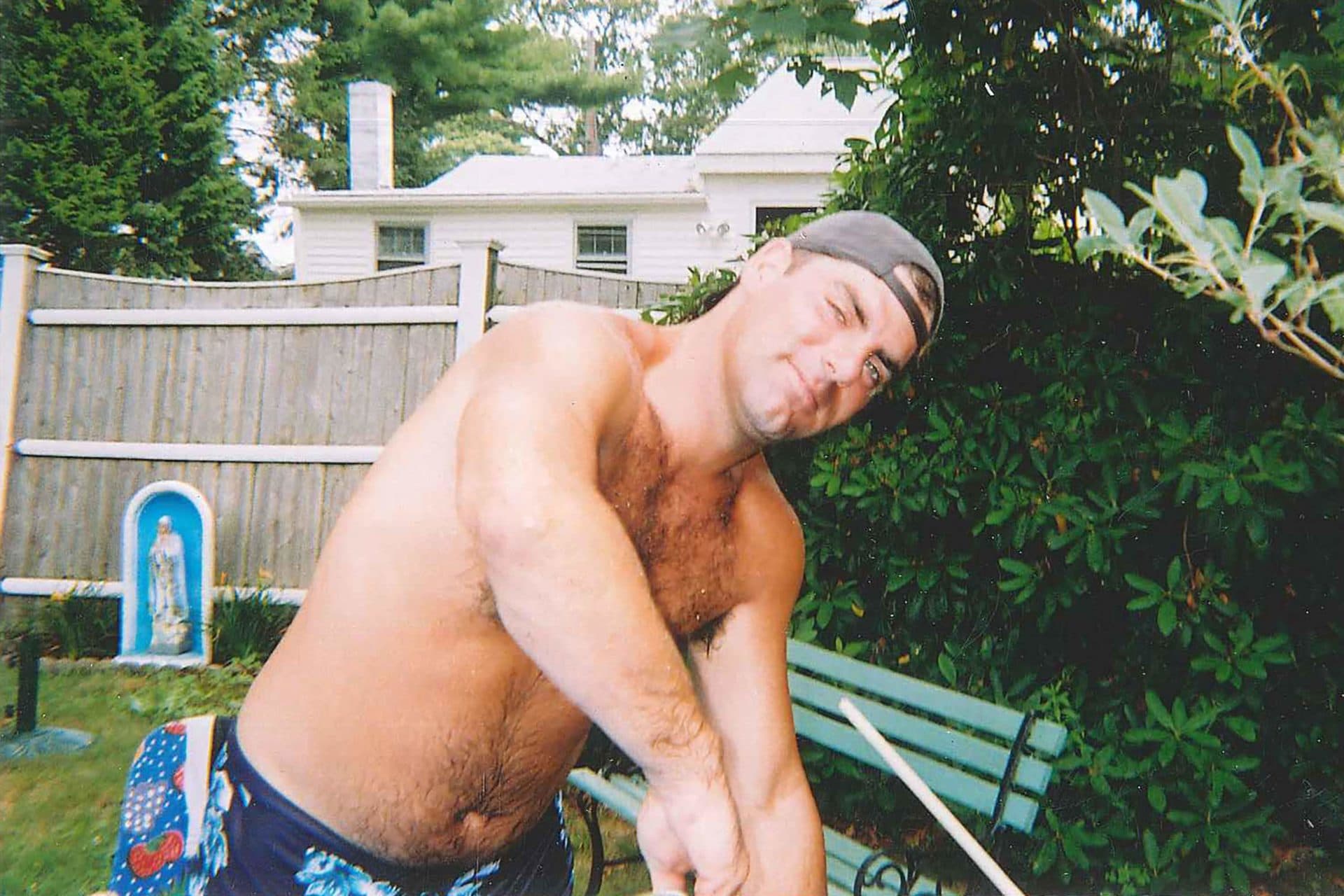
The medical examiner’s report would say Jimmy Davison, 38, died of heart disease. Only by chance, months later, would the family discover there was much more to the story.
'We Didn't Have A Clue'
The Davisons are among many families in Massachusetts that found themselves in the dark when a loved one died in a sheriff’s custody. Getting to the truth, and holding jail employees accountable, WBUR found, can be a frustrating battle that pits families against the legal resources of sheriffs and the state attorney general. For many, justice feels out of reach.
“They face the significant barrier of access to information,” said Betsy Ginsberg, a law professor and director of the civil rights clinic at Cardozo law school in New York City. “They have to rely on what's often incomplete paperwork from a prison or the jail. They have to rely on witnesses being willing to come forward and say what they saw happen.”
Sheriffs are required to conduct investigations when inmates die. But they’re often incomplete, with critical findings hidden from view. Not only do these reports rarely make their way to families or the public, but they generally are not acted upon by a higher authority in government.
This lack of transparency and oversight poses additional challenges to the public as the coronavirus threatens to sweep through jail populations. Some jails, like Middlesex, are releasing certain pre-trial inmates, to prevent the spread of infection; other sheriffs insist they’re best prepared to treat sick inmates, despite past health care failures.
Jimmy Davison’s brother-in-law, Sean Deady, learned first-hand how hard it can be to navigate the fog of secrecy around Massachusetts county jails.
Six months after Davison's funeral, Deady heard from an acquaintance out of the blue. He urged Deady to reach out to another friend, who had contacts inside the Middlesex County jail.
“ ‘You need to call him, because he knows how Jimmy died,’ ” Deady recalled the acquaintance saying. Deady said thanks, but he already knew.
“No,” the friend told him. “You don’t.”
Deady dove in, fighting for records from the office of Middlesex Sheriff Peter Koutoujian, a former state lawmaker who’s now one of the highest-profile sheriffs in the country. Deady sought medical documents and investigative reports, and he hunted for inmates who witnessed his brother-in-law’s final hours.
He also hired lawyers, because it’s virtually the only way to navigate the system. “We didn’t have a clue,” Deady said.
They would learn of a harrowing, 45-minute van ride, in which inmates were allegedly ignored when they tried to get help for Davison. And that guards and medical staff seemingly failed to recognize the emergency unfolding before them. Surveillance video of Davison would never be provided to the family’s attorney.
The lawyer, David Hass, said, “The more I investigated it, I found that there was not only a failure at the level of the officers who were driving the van that night, but there was a failure to investigate those officers at a higher level, at the sheriff's office.”
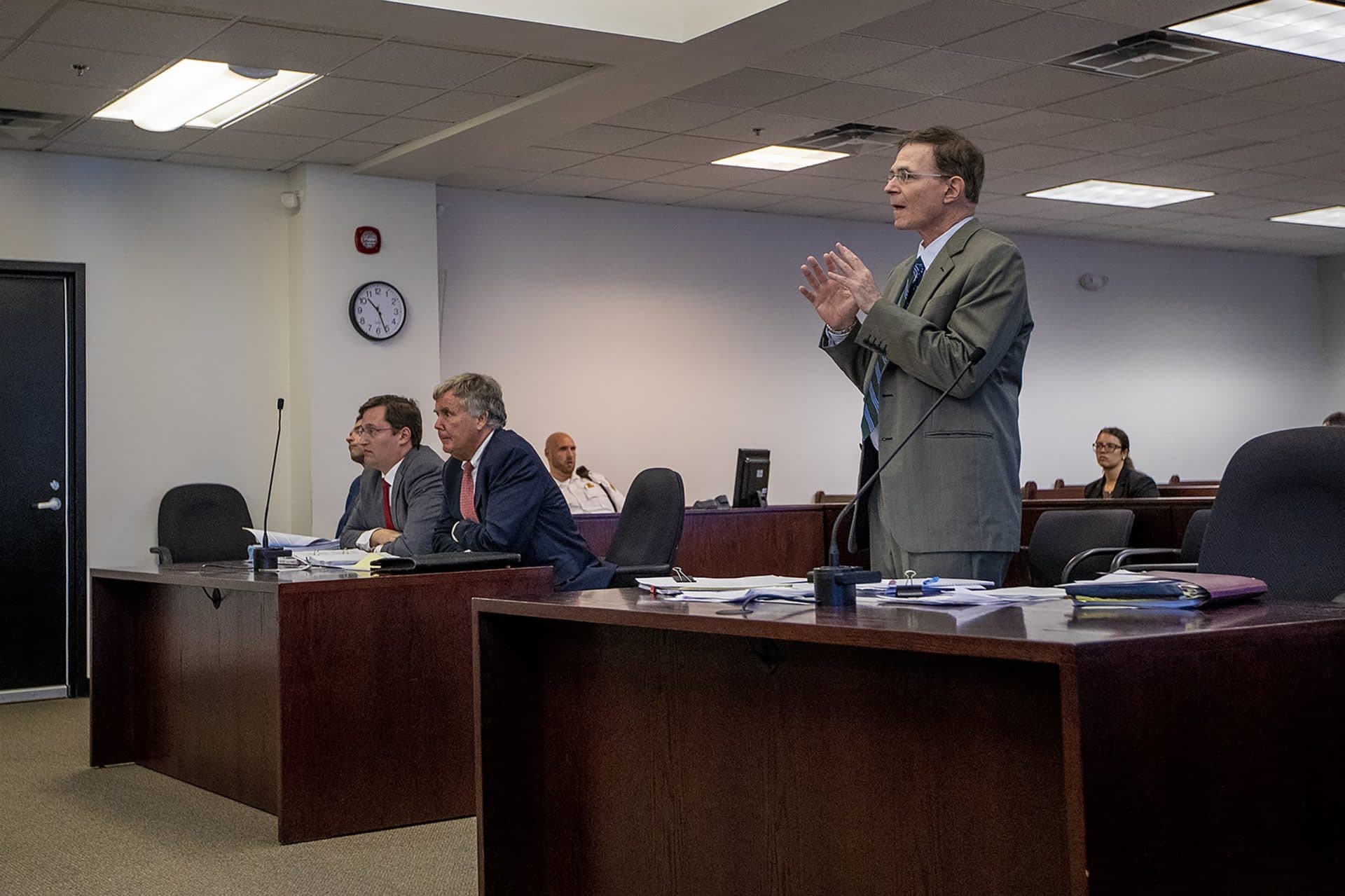
Many lawyers won’t take on jail injury or death cases. They can drag on for years, and payouts are often low. The state’s liability for sheriffs and other public employees is generally capped at $100,000. The exception is a civil rights case — in which an inmate’s constitutional right to health care is violated.
The bar is high to win these cases. And sheriffs often have the weight of the state attorney general on their side, defending them in court or arranging settlements — all on the taxpayers’ dime.
Despite Inmates’ Pleas, Guards ‘Wouldn’t Stop’
On the evening Davison fell ill, he was sick and behaving strangely, according to records from court and the Middlesex County jail. A nurse thought he was having a panic attack, and decided he should be moved to the sheriff’s new jail in Billerica, for more medical care.
He and seven other inmates were loaded into a transport van. Davison appeared to be having seizures, even before leaving the Cambridge jail, some of the inmates would later say.
In the van, Davison banged his head against the wall of the vehicle and yelled for help and water, according to inmates’ descriptions in court records.
“He kept telling the [corrections officers] that he was in pain, he was hurting, and he needed to go to the hospital. And they just kept driving. They wouldn't stop,’’ said Edward Jones, one of the inmates in the van, in a WBUR interview. “And next thing you know, he started crying. And he started, you know, he started praying.”
After a while, Davison went quiet.
The van made its first stop at the Concord prison, records show. Officers removed the other inmates, checking them in one by one. Fifteen minutes passed before they finally went to Davison, court records show. By then, he was unresponsive.
“He kept telling the [corrections officers] that he was in pain, he was hurting, and he needed to go to the hospital. And they just kept driving. They wouldn't stop."
Edward Jones
Concord prison staff tried to save him, records show. An ambulance arrived and took him to Emerson Hospital, but he never regained consciousness.
The family would never have known any of this, had Deady not received that unexpected tip from a friend. The family sued, claiming Davison’s constitutional right to health care was violated. Their attorney argued in court that the sheriff’s office failed to fully investigate the death.
“They never looked at any of the video that was available. They never even interviewed the officers,” Hass said at a preliminary court hearing last October. “That is indicative of a cover up, and indicative of the way the sheriff's office supervised its employees.”
In defense of the Middlesex officers, a lawyer from the state attorney general’s office argued that in transport vans, inmates “acting out for no other purpose but that of being disruptive” is common.
It’s unclear whether the officers driving the van that night faced consequences for Davison’s death. Disciplinary records aren’t public in Massachusetts. One of the men, Gregory McKiel, is still a corrections officer at the jail. The other, William Thong, is now a police officer in Peabody. Both declined to comment.
Sheriff Koutoujian would not discuss Davison’s death. He defended his staff, saying they’ve provided proper care for thousands of inmates who’ve passed through the Middlesex jail since he took office in 2011.
“Certainly there can be some exceptions,” he said. “But the officers in corrections, not just in Middlesex, but across the state, I think do an astounding job of providing care, custody and control for the people that are with us.”
Twenty-nine people have died in Middlesex's custody over the past decade.
Just weeks before the Davison death trial was set to start last December — and eight years after he died — the sheriff and the family agreed to a $500,000 settlement, well over the usual payouts in jail fatalities.
Deady had mixed emotions. He wanted the case to be aired publicly, and how could they put a dollar value on a life? He said his brother-in-law died an innocent man, who never got his day in court, and was denied the medical care he needed.
“I hope Jimmy's looking down saying that we did what he needed,” Deady said. “I just hope I'm his voice, that's all.”
Sheriffs Face Little Scrutiny On Deaths
When someone dies in a Massachusetts jail, a chain of events kicks in, from calling the next of kin to alerting state police investigators.
The state police determine only if a crime occurred — such as foul play by another inmate. The sheriff’s office does an internal investigation, including written statements by the staff on scene, and a chronology of any recent medical care. Medical staff must complete a “mortality review” within 30 days.
But sheriffs have significant autonomy. Much of what’s in these reports never gets shared with the public.
In records requests, WBUR asked the 13 sheriffs who run jails in Massachusetts to provide copies of their death reports to the federal government over the past decade, internal investigations and other documents related to deaths from medical causes.
“Even the most profound health metric — death — is inconsistently reported.”
Dr. Homer Venters
Six did not provide the federal filings, instead compiling lists of the dead that excluded numerous details. Only three sheriffs provided mortality reviews, and these were often heavily blacked out. Others disclosed investigation reports, but redacted medical details. WBUR received some of these records only after its lawyer threatened to sue under the state’s public records law.
“We wouldn't tolerate this lack of standardized and public reporting anywhere else,” said Dr. Homer Venters, a former medical director of the New York City Jails and president of a non-profit supporting inmate care. He said sheriffs have an obligation to provide adequate health care, and to inform the public of what’s happening behind jail walls.
“Even the most profound health metric — death — is inconsistently reported,” Venters said. “We must know for each of those deaths, was that death attributable to conditions, or lack of health services, behind bars.”
Ginsberg, the law professor, said disclosure of some parts of death records can be tricky, because people have medical privacy rights, even after they die.
“But certainly none of those privacy concerns should trump reporting and oversight over deaths,” she said.
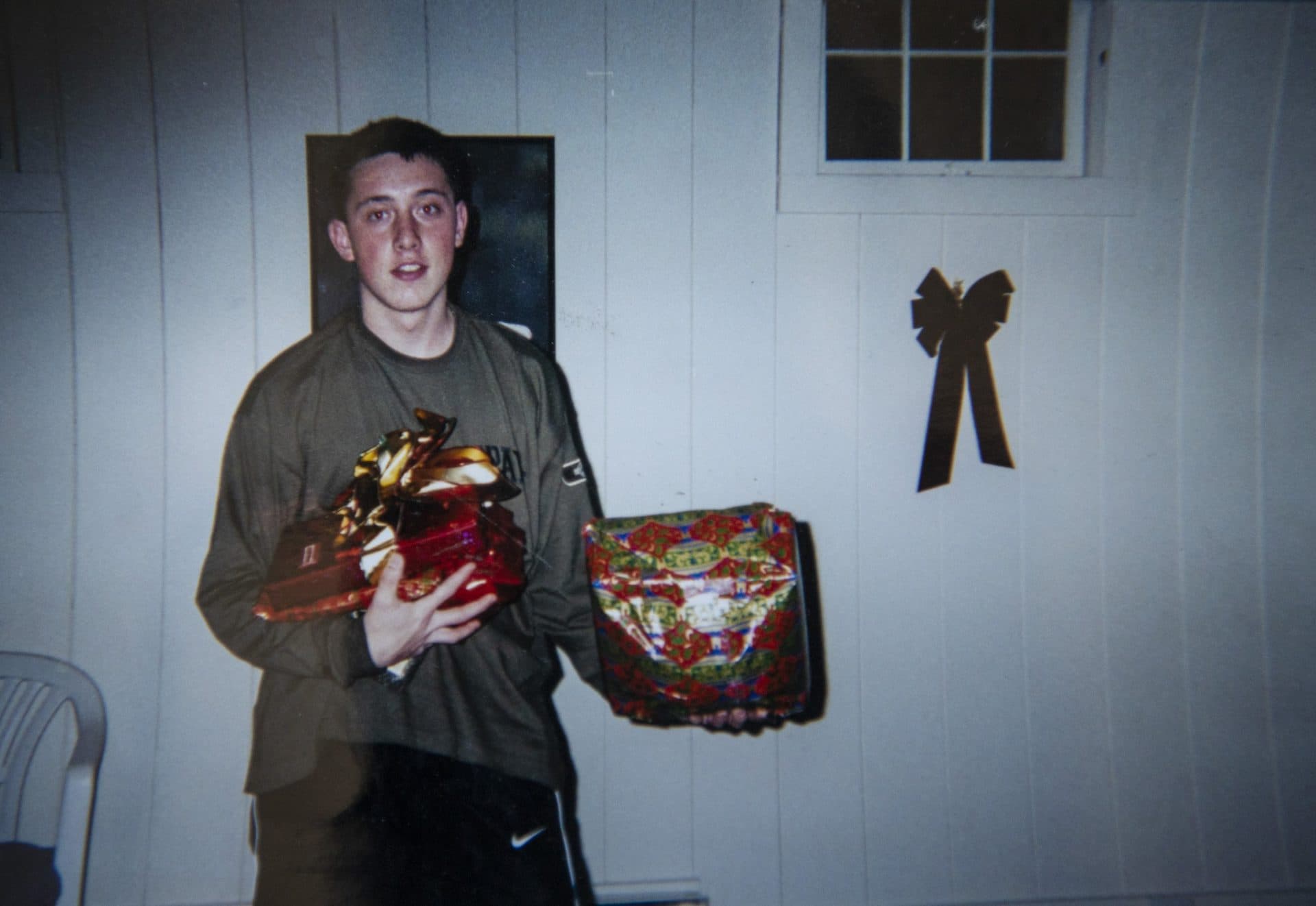
When John Shannon died at the Barnstable County jail in 2014, there was much his mother was never able to learn.
The story was tragic, but seemed straightforward. On the eve of his 31st birthday, his new cellmate gave him heroin — a drug that Shannon, court records say, did not typically use. It killed him.
His mother, Ellen, wanted to sue the Barnstable sheriff’s office. But a lawyer told her the case was weak, so she gave up, as often happens when someone dies in jail.
But here’s what she didn’t know about the day her son died: The nurse on duty failed to administer oxygen to him and did not give him the overdose-reversing drug Narcan, which the jail had on hand, according to records reviewed by WBUR.
Video shows the nurse, Peter Kozak, standing outside Shannon's cell while guards tried to resuscitate him.
According to audio from an internal investigation, Kozak admitted to a Barnstable investigator that he didn’t tell anyone on the scene he had Narcan.
Editor's Note: Above is a recording of a Barnstable County sheriff's office investigator questioning nurse Peter Kozak about Shannon's death. WBUR obtained the audio in a records request.
The sheriff’s office filed a complaint against Kozak with a state licensing board; he was fired and surrendered his nursing license.
Barnstable’s complaint also shows employees had prior concerns about Kozak’s ability to safely treat inmates in emergencies. Kozak could not be reached for comment; the Barnstable sheriff declined to comment on Shannon’s death.
“Nobody's explained to me what actually happened,” Ellen Shannon said. “I didn't even know about the nurse.”
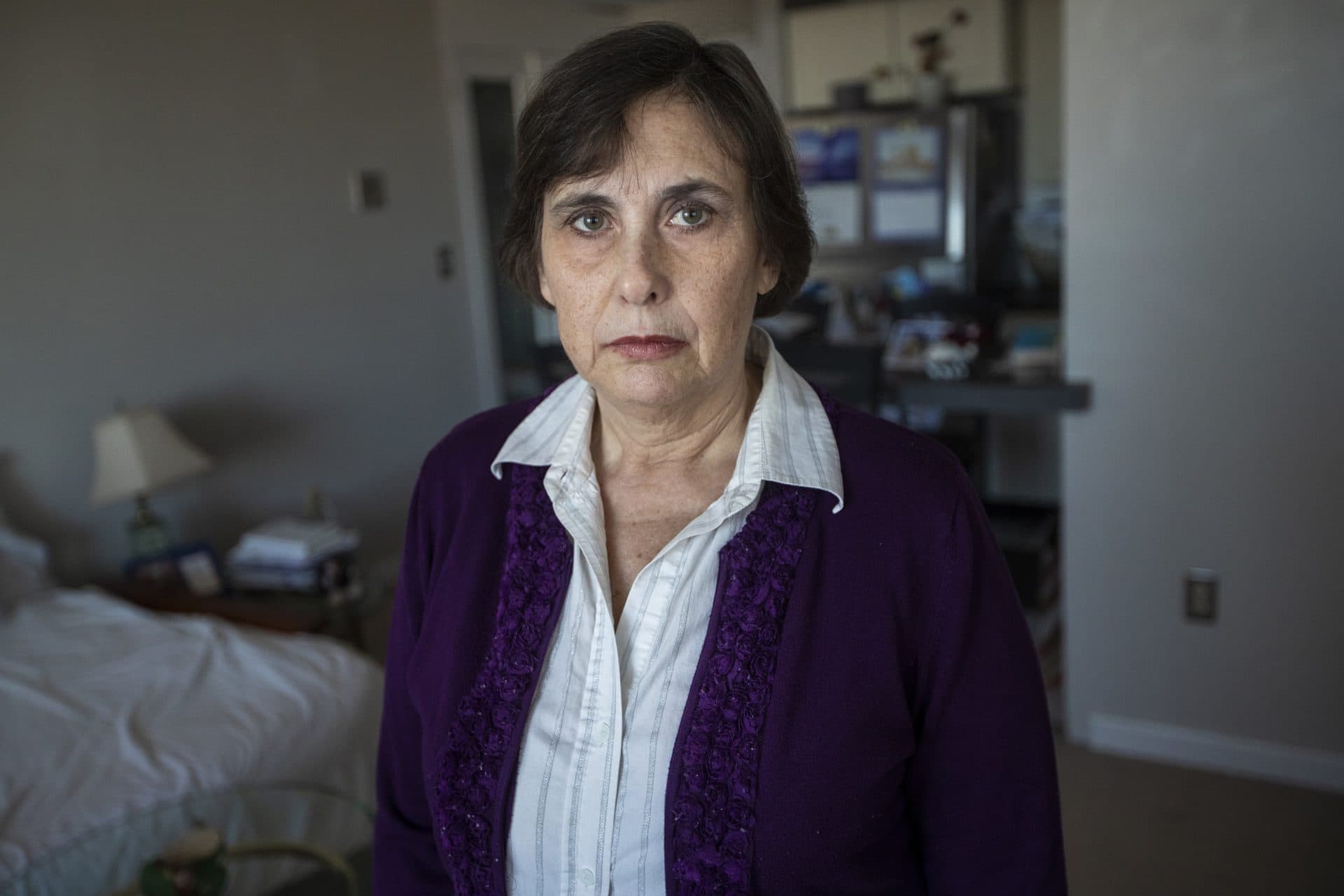
Millions Of Dollars In Settlements
There are financial ramifications of these deaths, too. Taxpayers end up footing the bill for the defense of sheriffs and jail staff in court — and any resulting settlements.
A man allegedly hurt by guards at the Plymouth County jail got $50,000. On the other end of the scale, the family of an Immigration and Customs Enforcement detainee who died of sepsis in the Suffolk sheriff’s custody got $600,000.
But like the deaths themselves, the details of these settlements are murky at best.
Share your story or send our investigative team a tip. Plus, sign up to get WBUR investigations in your inbox. And listen to this series on your smart speaker.
WBUR found Massachusetts taxpayers have paid more than $8 million in sheriff settlements of all types over the past decade. But only half of that is publicly listed on a state website that promises transparency. The comptroller’s website does list a smattering of payments, from deaths and injuries to employment disputes.
For instance, it shows the family of a former police officer who died at the Franklin County jail of delirium and drug withdrawal received $300,000, after guards claimed to have checked on him, but allegedly did not.
Then, there are two other ways sheriffs pay settlements that the public knows little about.
One is called a “Liability Management and Reduction Fund.” Sheriffs have paid $2.4 million in unidentified settlements from this fund over the past decade, based on a WBUR review of the limited data provided. (The family in the Franklin case was paid another $100,000 from this fund.)
The Worcester County sheriff’s office doesn’t appear at all on the comptroller’s public website. Yet an entry in the liability fund matches the date Ziggy Lemanski died in the jail’s custody and the $62,500 the sheriff paid to settle.
A third way sheriffs pay settlements is from their own budgets — at least $1.6 million worth over the last eight years, according to records obtained from the comptroller’s office. Sheriffs are supposed to disclose these payments to the comptroller, with details, but don’t always comply, according to the comptroller’s records officer.
Many of these legal battles are settled quietly, the stories of suffering or death relegated to dusty courthouse files.
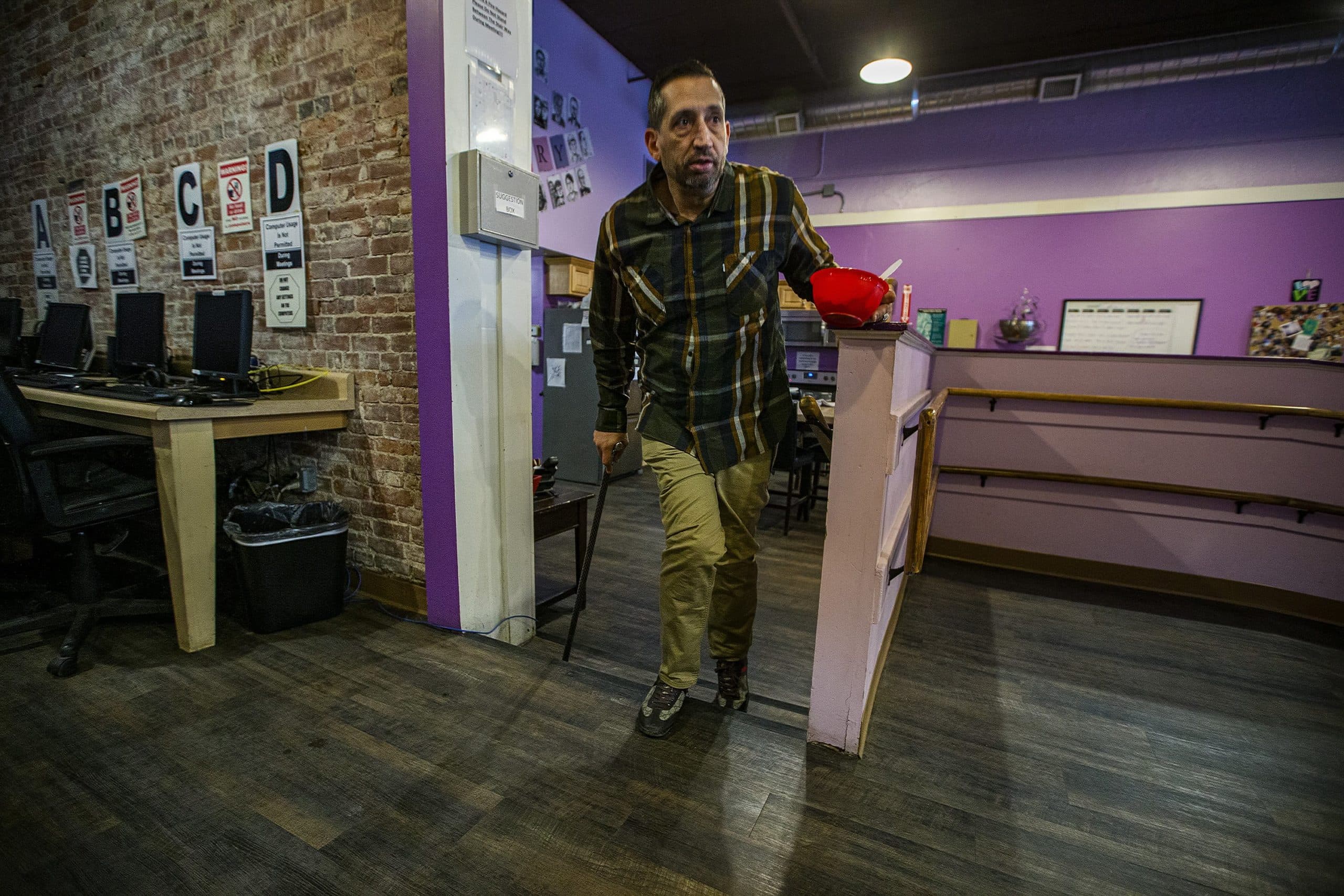
One who is still fighting is Michael Earielo, seven years since he filed suit — and almost a decade after he nearly died of a spinal infection at the Worcester County jail.
Over a week there, Earielo recalled, he told guards and nurses he had severe back pain and repeatedly asked to go to the hospital. He alleges he was ignored for days.
“I was in my own feces, in my own pee, for days before I got somebody to come look at me,” he said. Once hospitalized, he had major spine surgery. He would need to use a wheelchair for more than a year.
“I used to jog a lot, and I miss that. I miss feeling the wind in my face,’’ Earielo, now 50, said. “Definitely can't run no more. Can't jump [or] chase my grandchildren around the house.”
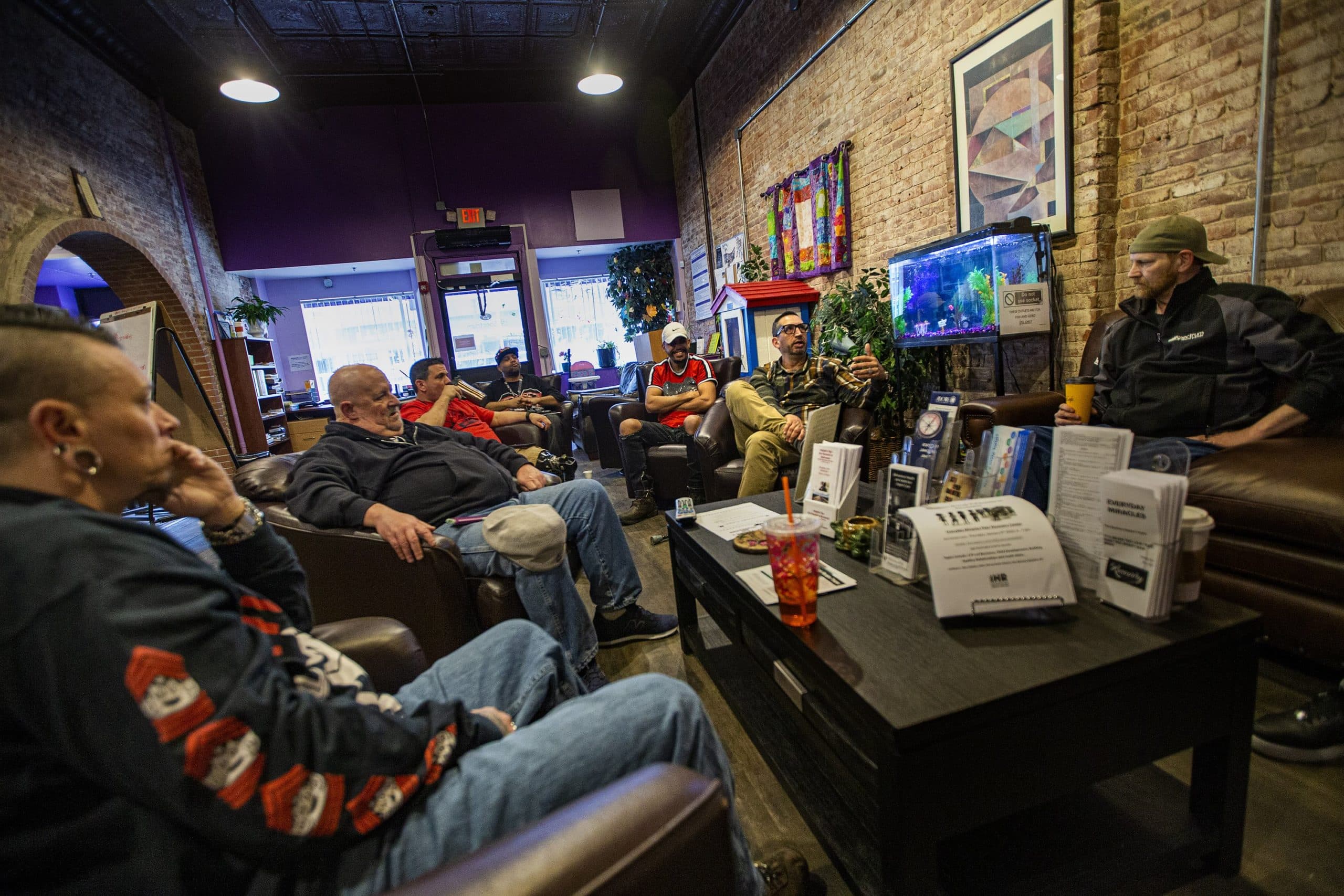
He now manages a drug rehab center that has been helping about 120 people a day. He has trouble walking and said he needs another surgery.
The Worcester County sheriff’s office is still fighting him in court. In 2018, the sheriff’s lawyer sought to have two licensed practical nurses dismissed from the case. A judge denied the motion, saying the record was “sufficient to allow findings of deliberate indifference” to Earielo’s medical needs.
The attorney for the sheriff’s office appealed that decision. Earielo waits for a ruling.
“I have mental scars. I have physical scars and I have scars that are going to come later on in years,” Earielo said. “Someone’s got to be held accountable.”
This segment aired on March 27, 2020.

